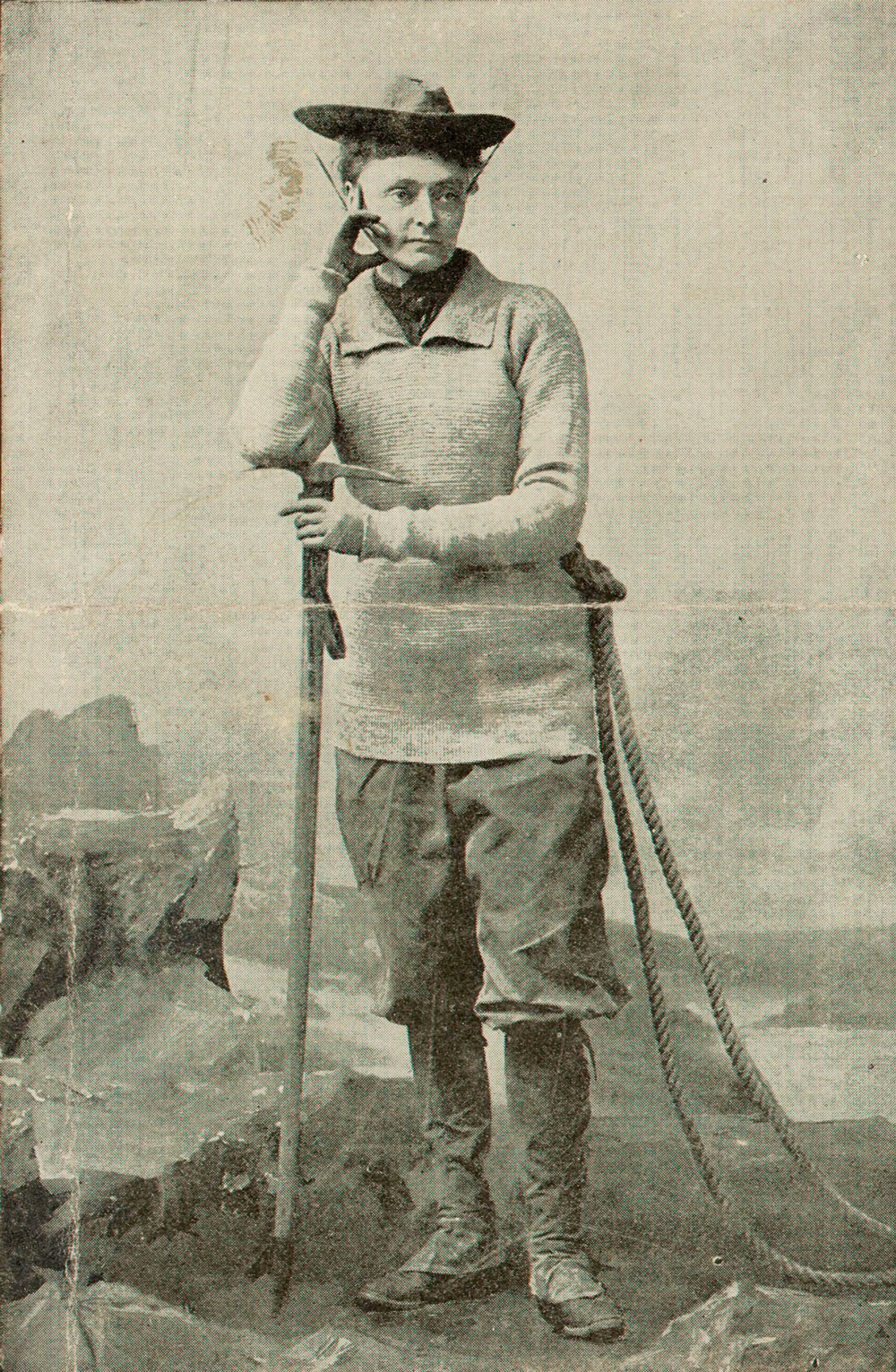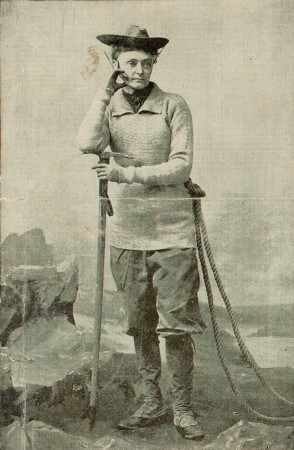Annie Smith Peck | New England’s Gifts
Feisty Annie Smith Peck conquered the world’s highest peaks —and horrified her Rhode Island relatives in the process. Born into a traditional New England family in 1850—her father was a lawyer and businessman, her mother a direct descendant of Roger Williams—she mortified her parents when she vowed she would develop the strength and stamina to […]

Annie Smith Peck defied the conventions of the turn of the last century to become a world-renowned mountaineer. “Climbing is unadulterated hard labor,” she wrote. “The only real pleasure is the satisfaction of going where no man has been before and where few
can follow.”

can follow.”
Photo Credit : Courtesy of Bentley Historical Society, University of Michigan
Feisty Annie Smith Peck conquered the world’s highest peaks —and horrified her Rhode Island relatives in the process. Born into a traditional New England family in 1850—her father was a lawyer and businessman, her mother a direct descendant of Roger Williams—she mortified her parents when she vowed she would develop the strength and stamina to go places and do things that no womanhad before. At age 45 she climbed the Matterhorn and became world-famous.
Annie was slightly built, not the Amazon people expected. She provoked moral outrage with her daring and eccentric climbing outfit: a hip-length tunic, knickerbockers, stout boots, and woollen hose, topped off by a soft felt hat with a veil. After the Matterhorn, she went looking for a mountain no man had ever climbed. In 1906 she found it: 22,204-foot Mount Huascarán in Peru. No one had ever attempted to climb it. After two failed attempts, Annie, with two Swiss guides, reached Huascarán’s north summit in 1908. She had climbed higher than any American, man or woman, in the Western Hemisphere. The Peruvian government named the north peak Cumbre Ana Peck in her honor. She was 58 years old.
After years of climbing, she made New Hampshire’s Mount Madison her final ascent in 1932.She was 82 years old. On her gravestone in Providence is written: “You have brought uncommon glory to women of all time.”
—“Peck’s Bad Girl,” by Charles Tuck Robinson,February 1997


